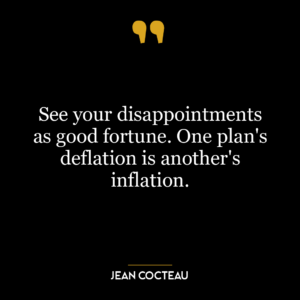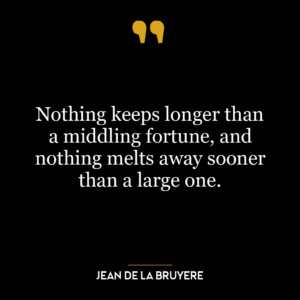This quote is a profound commentary on the human experience of success, failure, and happiness. It suggests that people who have never experienced good fortune can often be happier than those who have tasted it and then lost it. This is because the former have not experienced the loss associated with fortune’s desertion, and thus, they are more content with their circumstances.
The idea is rooted in the understanding that human beings often struggle more with the loss of something they once had, rather than never having had it at all. The pain of losing something we once possessed can be more intense than the pain of never having owned it. This is because when we lose something, we are not only dealing with its absence but also grappling with the void that its loss has created in our lives.
In today’s world, this idea could be applied to various aspects of life, such as wealth, fame, relationships, or even material possessions. For instance, someone who has never been rich might find more joy in their modest lifestyle than a once-rich individual who has lost their wealth. The former has learned to find happiness within their means, while the latter is tormented by memories of a more prosperous past and the bitter reality of their present.
From a personal development perspective, this quote encourages us to find contentment in our current circumstances rather than constantly striving for more and then fearing to lose it. It reminds us that happiness is not necessarily tied to fortune or success, but to our perception of our circumstances and our ability to find joy regardless of them. It also highlights the importance of resilience and the ability to cope with loss, which are crucial skills in maintaining emotional and mental well-being.














